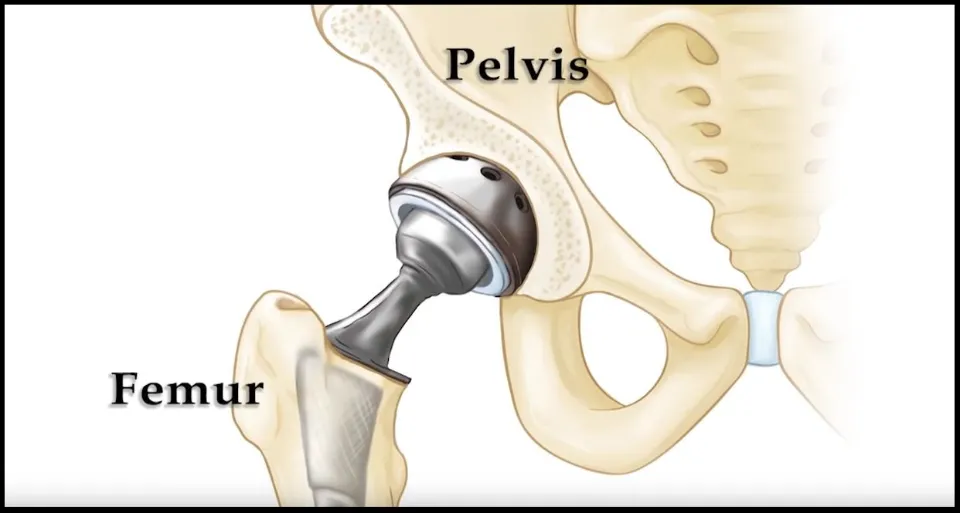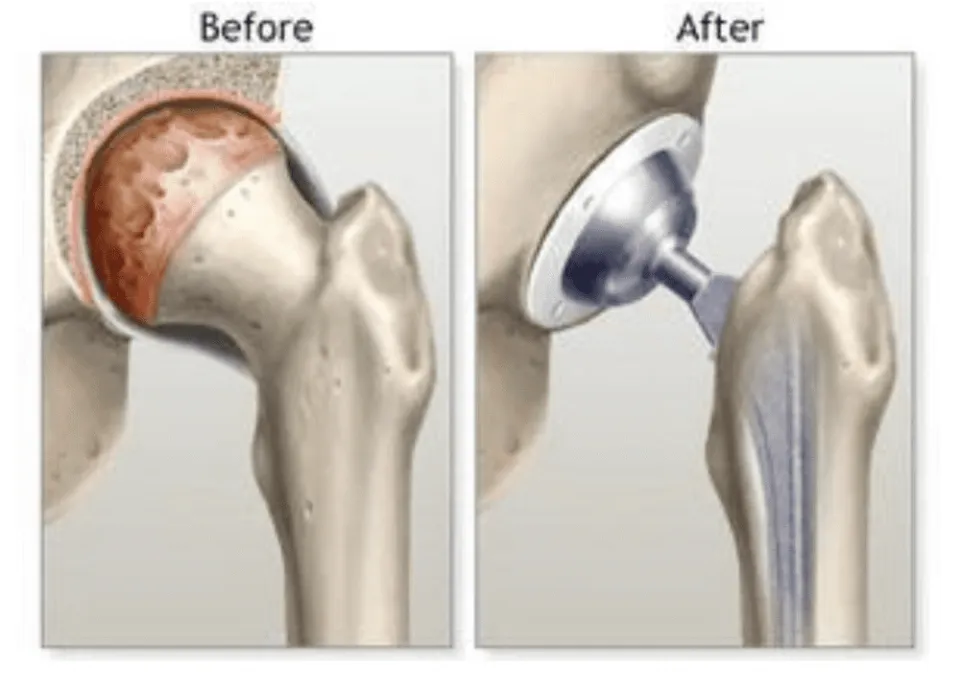Hip replacement implants that are becoming looser can hurt. Groin or upper thigh pain, fresh popping or clicking sounds, joint instability, and dislocation or subluxation (partial dislocation) of the joint are all signs of a loose hip replacement.
The typical lifespan of a hip replacement is 20 years or more. Excessive strain on the artificial joint can result in it wearing out sooner if you carry extra weight, engage in high-impact activities, or exercise. A mishap, a fall, or another impact injury can also make the hip replacement loose.
How do you fix a loose hip replacement? The causes of the loosening of a hip replacement are covered in this article. It also explains why joint revision surgery may be necessary if a hip replacement fails.
Read more: A Complete Guidance of Knee & Hip & Shoulder Replacement (2023) – Elder VIP
What is Hip Replacement?
Hip replacement surgery is one of the most popular orthopedic procedures and is carried out more than 300,000 times annually in the United States1. It has a track record of safety and has been shown to increase the quality of life and life expectancy in patients with functional loss of mobility.
Hip prosthetic loosing is one of the main worries with hip replacement surgery. It is a normal consequence of implant surgery, sometimes requiring revision surgery to correct the problem.
Unfortunately, the results of revision surgery are frequently not as good as those of the initial procedure. Equally concerning is the possibility that joint loosening will result in infection or implant breakage, both of which carry a risk of serious and, in some cases, life-threatening complications.
Life Span of Hip Prosthetics
An average hip replacement lasts 20 to 25 years. While some implants last longer than others, some fail much more quickly. Occasionally, the implant will fail immediately after surgery, but, in other cases, an implanted joint may last for 30 or more years with no problems whatsoever.
When joint replacement surgery was still considered novel decades ago, there were various factors that affected how long a hip implant would last. The metals in some of the earliest implants were prone to breaking, and the plastics quickly shatter.
Present-day implants typically last well after implantation because of advancements in hip prosthetic strength and fixation methods. Serious complications of joint prosthesis infection have also decreased as a result of advancements in sterile surgical protocols and infection control.

What Causes My Hip Replacement to Loosen?
The most common symptom of a loosening hip replacement is the development of increasing pain. This would typically be felt while carrying weight, i.e. walking. On rare occasions, the pain might not last but instead strike suddenly, especially when the leg is being twisted. If loosening is particularly severe, the leg may begin to get shorter. This happens as the femoral bone’s stem starts to descend further into the canal.
At least 15 years should pass after a hip replacement. They frequently last up to 20 or 25 years. Several factors can contribute to a loosening hip replacement:
- Over time, the wear between the moving parts of the hip causes slight destruction to the bone where the implant is fixed. The implant experiences “debonding,” also known as “loosening,” as a result.
- If an infection occurs deep within the joint, the debonding process can occur earlier than normal.
- If you fall heavily and cause a fracture/breakage of the bone around the hip replacement, this can also result in loosening.
Urgent Cases
Other than loosening, hip replacements can fail. For instance, a dislocation may occur in the weeks after surgery if the joint’s ball slips out of its socket.
Additionally, an infection may develop as a result of the joint becoming looser or as a side effect of the initial surgery. In rare instances, an infection can spread throughout the body and harm the surrounding muscles, ligaments, cartilage, and bones. In such cases, prompt revision surgery is needed to maintain the structural integrity of the joint and prevent the cataclysmic loss of mobility.9
Joint Revision Surgery

Because revision surgery is a much trickier operation than the initial one, hip implant loosening is a problem of particular concern. If and when revision surgery is required, the hip joint is more likely to be worn out and the femur and pelvis are more likely to be brittle or unstable.
After revision surgery, patients typically regain less joint range of motion (ROM). The longevity of the implant will also decrease, increasing the risk of a second revision surgery.8
As a result, medical professionals try to extend the life of each replacement as much as possible and delay joint replacement surgery unless it is absolutely necessary.
How Do You Fix a Loose Hip Replacement?
My advice is that if you notice any new symptoms which relate to your hip replacement, you should seek advice from an orthopedic hip specialist as it is normal to obtain new X-rays to check to see if there are any obvious problems with the implant. Other investigations might also be necessary if there is any doubt about the absence of an infection.
If you are seeing an orthopedic surgeon about your hip, I would expect that:
- They will ask you questions about the problems that you have been having and the time course of those problems.
- They should examine you to determine the source of the pain and should arrange appropriate investigations to help in diagnosing the source of the pain. In some cases, bone scans, CT scans, or MRI scans may also be performed along with X-rays, blood tests, and other investigative procedures.
If the hip replacement is loose, the treatment depends on how loose the implant is and whether you are coping with your symptoms or not. During revision hip replacement surgery, loose hip replacements are frequently “revised,” which entails removing the loose components and substituting new, firmly fixed ones. Compared to a first-time hip replacement, this kind of surgery is typically more difficult and time-consuming. The surgeon should describe what he or she is going to do and any possible risks involved with the procedure.
Conclusion
Wear and tear on the implant surface and subsequent weakening of the surrounding bone are the most frequent causes of hip replacement loosening. It is advisable to consult an orthopedic hip specialist if you experience any new hip replacement-related symptoms because it is customary to get new X-rays to look for any obvious implant issues.



